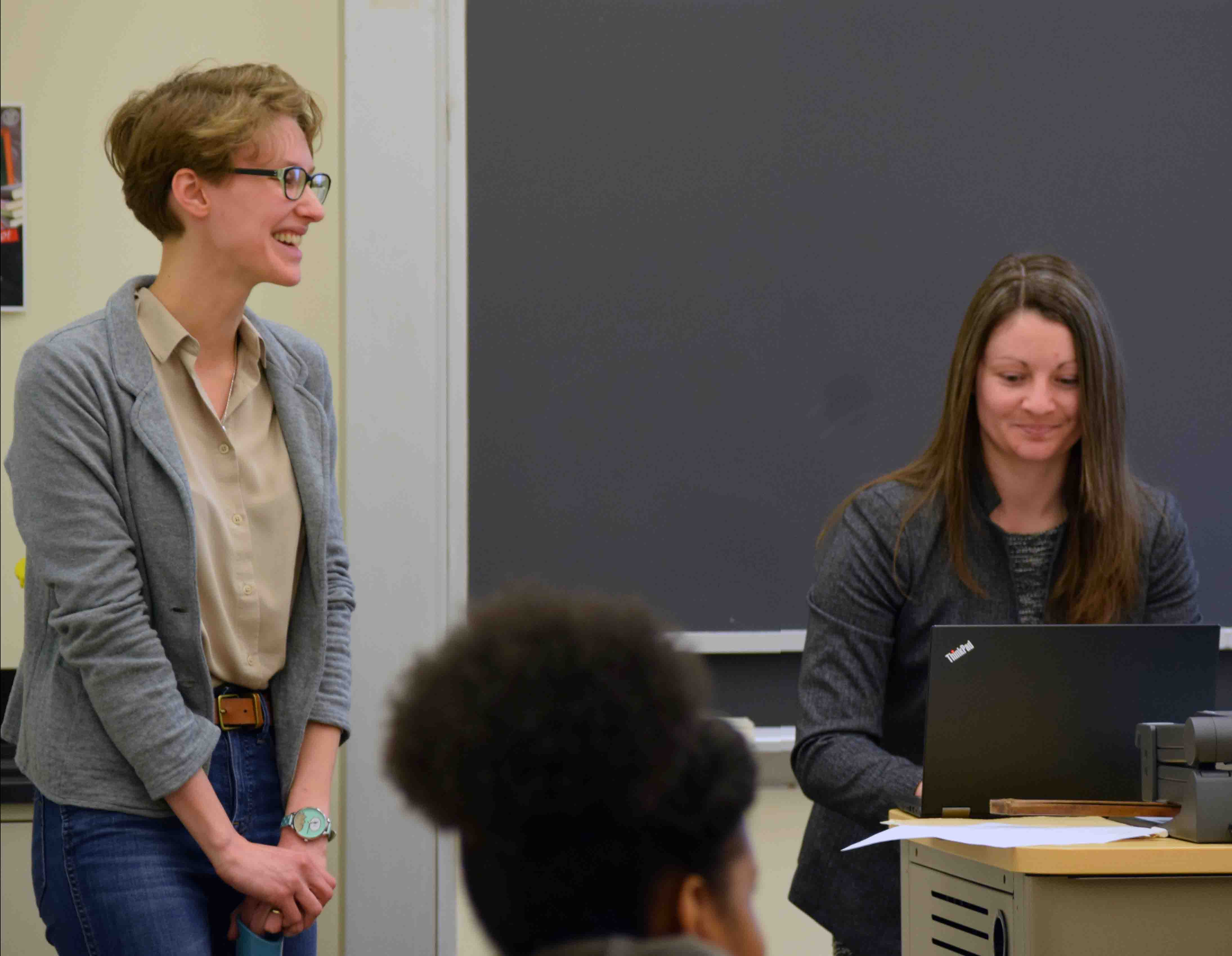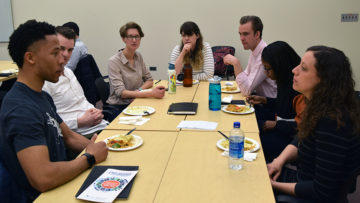Science Policy Test Drive

Moderated by Careers Beyond Academia/BEST Advisory Board member Celine Cammarata and featuring Jessica Soule, AAAS Science and Technology Policy Fellowship (STPF) recruitment and outreach director, the panel included Elizabeth Day, post-doctoral fellow at the Bronfenbrenner Center for Translational Research at Cornell, STPF alumna; Joe Regenstein, Professor Emeritus of Food Science at Cornell, STPF alumnus; Chris Schaffer, Associate Professor of Biomedical Engineering at Cornell, STPF alumnus; and Catherine Young, Senior Director of Science Policy at the Biden Cancer Initiative, STPF alumna.
The panel was convened to give participants a peek behind the curtain to learn the ins and outs of the selection process for the AAAS Science & Technology Policy Fellowships, what qualities are sought after in an applicant, and how the work environments differ for awardees in various assignments. In addition, since attendees were also able to schedule one-on-one meetings with Soule with the goal of strengthening their portfolios, they could obtain personalized relevant feedback for their upcoming applications.
After completing his own STPF, Schaffer and his then postdoc, Young, together created the start of the popular Science Policy Bootcamp: from Concept to Conclusion course with an Engaged Cornell grant that set the stage for Cornell’s BEST Program science policy track. Cammarata serves as President of the Advancing Science And Policy graduate student organization that organized and hosted this panel discussion and the subsequent networking lunch.
 What did participants learn of value by attending the event? (if shared in the anonymous post-event survey, the field of the participant is added)
What did participants learn of value by attending the event? (if shared in the anonymous post-event survey, the field of the participant is added)
“Models of experience.” (Social Sciences field)
“Explaining competitiveness of fresh PhD applicant vs older/more experience applicants.” (Animal Science)
“The importance of the why in an application.”
“I learned more about career opportunities in policy and what I need to get there.” (Biomedical Engineering)
“The experience of being a fellow.What is important in an applicant.” (Biomedical Engineering)
“Better perspective on extra things you can do during the fellowship. Sense of timeline in applying.”(Chemical and Biomedical Engineering)
“Details about successful applicants experience (when they applied).”
“Learned so much: ‘Be an excellent scientist,’ ‘Create that personal story,’ ‘The power is intoxicating.’ ‘We always have something we can contribute.'”
“Insight into the details of what it’s like to be a fellow. Networking with fellows. Concrete approaches for STPF applications.”
“Learning what I can do now to be ready for the fellowship.”
“Insight about daily life as a fellow.”
“Learning about past fellows’ policy experience when they applied for the fellowship was helpful!” (Food Science and Technology)
“Candidates are measured against those close in their career status and expertise. Creating a personal/compelling story for application.” (Microbiology)
“How to have a competitive application.” (Plant Biology)
This spotlight is from the time period of the NIH grant (Sept. 2013- Jun. 2019) to the Cornell BEST Program now housed in the Graduate School as a university-wide initiative “Careers Beyond Academia” to encompass all disciplines.


